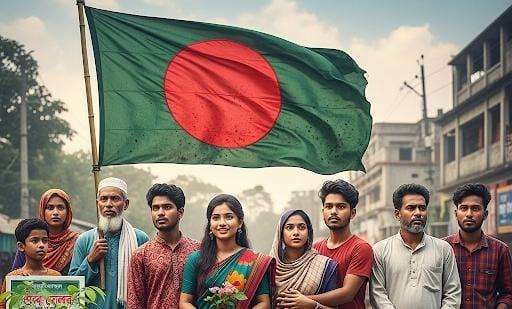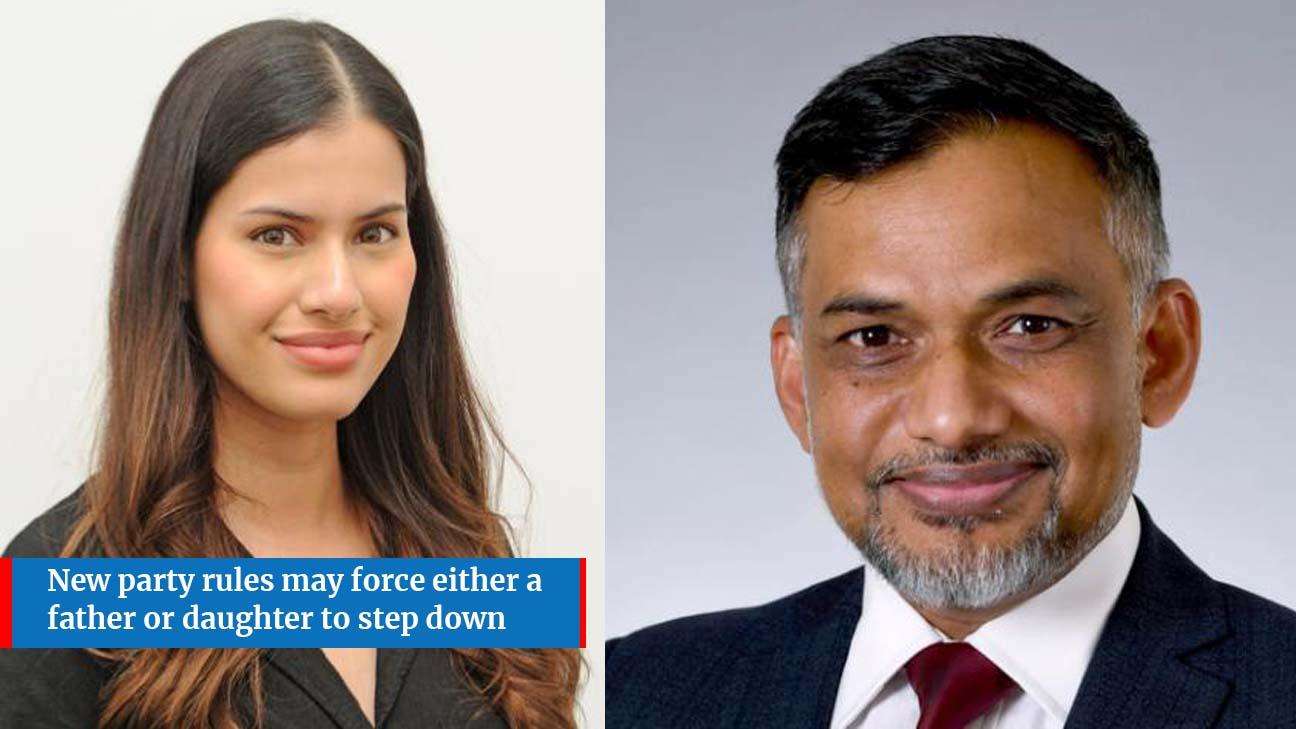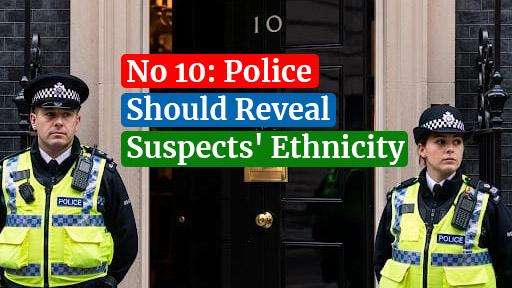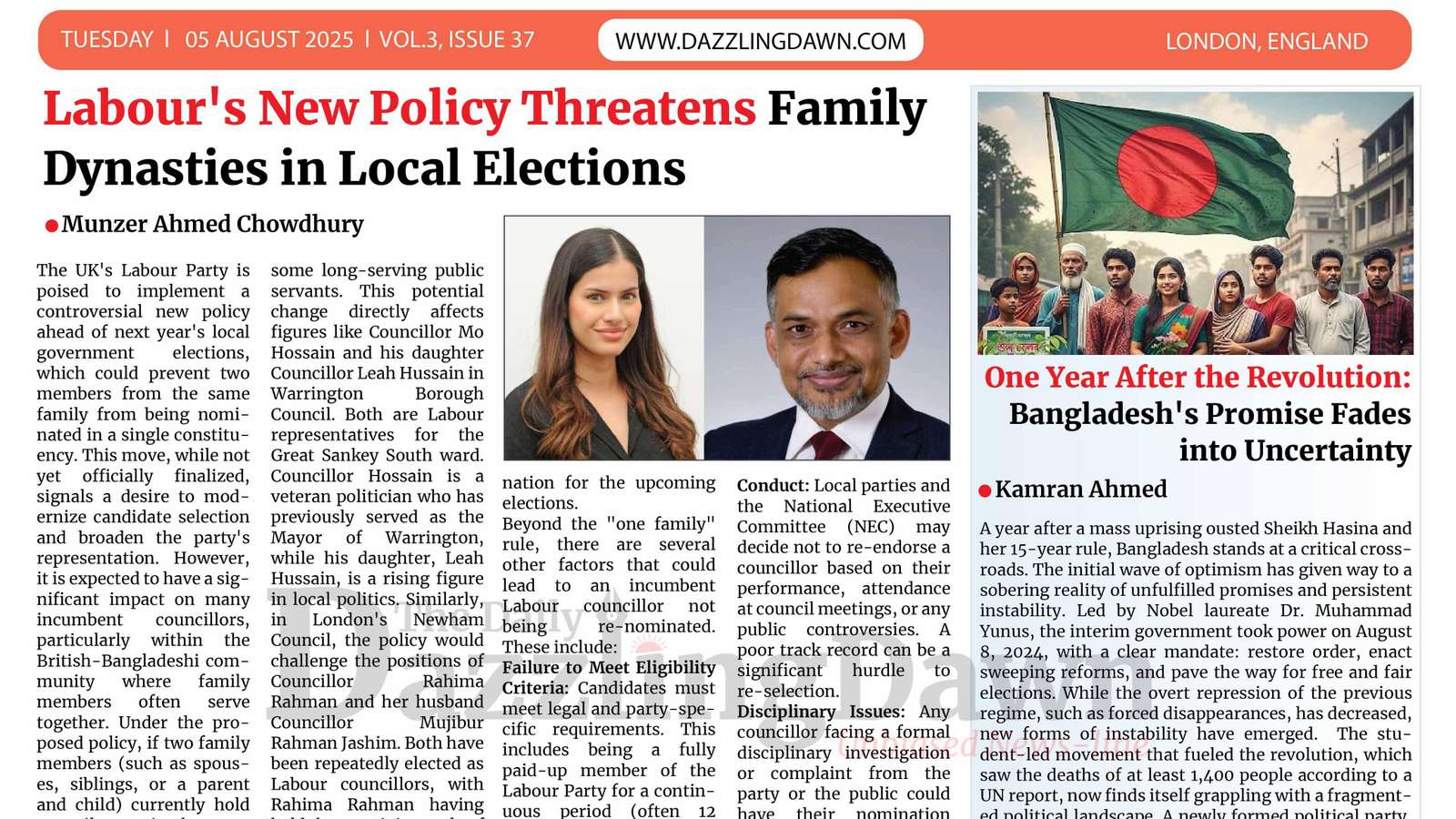A year after a mass uprising ousted Sheikh Hasina and her 15-year rule, Bangladesh stands at a critical crossroads. The initial wave of optimism has given way to a sobering reality of unfulfilled promises and persistent instability.
Led by Nobel laureate Dr. Muhammad Yunus, the interim government took power on August 8, 2024, with a clear mandate: restore order, enact sweeping reforms, and pave the way for free and fair elections. While the overt repression of the previous regime, such as forced disappearances, has decreased, new forms of instability have emerged.
The student-led movement that fueled the revolution, which saw the deaths of at least 1,400 people according to a UN report, now finds itself grappling with a fragmented political landscape. A newly formed political party, the National Citizen Party, created by the protest organizers, is calling for a new constitution. At the same time, the opposition Bangladesh Nationalist Party (BNP), whose leadership suffered under Hasina, is mobilizing its own supporters. The sacrifices of the protesters are being overshadowed by a growing sense of disappointment as the promised reforms have been slow to materialize.
Economically, the country presents a mixed picture. While the crucial garment industry is showing signs of recovery, the overall economic outlook remains fragile. The Asian Development Bank (ADB) has downgraded Bangladesh's GDP growth forecast for the 2025 fiscal year to 3.9%, citing weaker domestic demand, political transition, and high inflation. The interim government has taken measures to address the economy, including untying interest rate controls to curb inflation and reorganizing the stock market. However, a significant youth unemployment crisis persists, and political infighting has hampered the government's efforts to create jobs.
Despite establishing eleven commissions to recommend changes to the electoral system, judiciary, and public administration, a large gap exists between these recommendations and their implementation. The timeline for elections remains a major source of uncertainty, with different political parties pushing for different dates. The interim government has also faced criticism for banning the Awami League party from participating in the upcoming elections, a move that critics say undermines the democratic nature of the polls.
The most definitive success of the revolution is the removal of Sheikh Hasina, who fled the country on August 5, 2024. She is now on trial in absentia for crimes against humanity, accused of ordering the deadly crackdown on protesters. The trial began on August 3, 2025, with the first witness giving testimony. Two of her top aides, former Home Minister Asaduzzaman Khan Kamal and former police chief Chowdhury Abdullah al-Mamun, are also facing charges. The interim government has requested Hasina's extradition from India, where she is currently in hiding, but India has not yet responded.
The current political landscape is marked by a surge in mob violence, political violence, and harassment of journalists. There are also allegations of land grabbing and extortion in the name of the BNP Jamaat.
Allegations of extortion have been leveled against many members of the student party, and the public's high expectations for them have largely faded. There is widespread discussion about whether it was a mistake to bring students into power. Most of the public's expectations for Dr. Yunus's government have turned into disappointment.
With the nation still polarized and key reforms stalled, many are left to question if this victory was a true end to a long struggle or simply the beginning of another cycle of political turmoil. There is a growing fear that if the dreams of this revolution are shattered, the nation may lose the courage to dream of another.
_1.jpg)

_1.jpg)




.svg)


